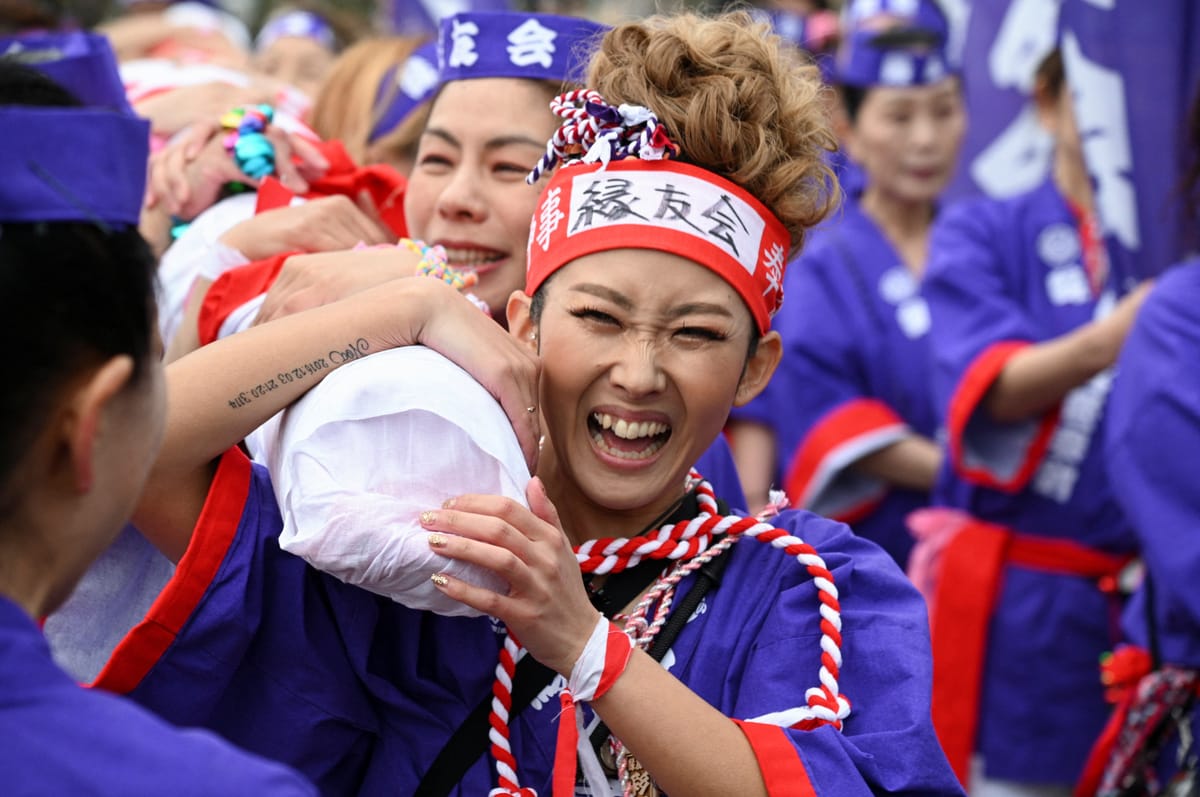Making history – women take part in Japan’s “Naked Festival,” Hadaka Matsuri, for the first time
For many years, women have shared the same passion as men for this festival but haven't participated, instead watching and supporting the men from the sidelines.

A few minutes every morning is all you need.
Stay up to date on the world's Headlines and Human Stories. It's fun, it's factual, it's fluff-free.
For 1,250 years, Japanese men have been braving the cold winters and taking part in Hadaka Matsuri, or the "Naked Festival," which is held on the third Saturday of February every year at the Konomiya Shrine in central Japan. The festival's purpose is for the men to drive away evil spirits before praying for happiness at the shrine and gaining luck for the year.
About 10,000 men take part in the event, although they aren't as naked as the name seems to suggest. They're more like "nearly naked," wearing a Japanese loincloth called a "fundoshi" and a pair of white socks called "tabi." The light clothing lets them wade through purifying (freezing cold) waters before entering the main part of the temple, where a priest throws 100 bundles of twigs and two lucky shingi sticks into the crowd.
According to legend, whoever catches one of these twigs or lucks out with a shingi stick is guaranteed a year of good fortune (so you can see why so many are willing to take part). There's also a similar event held for young boys to keep the tradition going for many generations to come.
Enough about the men, though – this year's Naked Festival was one for the history books. For the first time, a group of 40 women took part, and they were welcomed with open arms (for the most part).
For many years, women have shared the same passion as men for this festival but haven't participated, instead watching and supporting the men from the sidelines.
Naruhito Tsunoda told Reuters there's never been a ban on women partaking. It's just that no one had ever asked. So when the idea of women joining in the festivities came up, the response was pretty welcoming. "I believe the most important thing is for there to be a fun festival for everyone. I think God would be happiest about that too," Tsunoda said.
One grandmother, Atsuko Tamakoshi, told the BBC, "There were many voices that were concerned (about us taking part), saying, 'What are women doing in a men's festival? This is a men's festival; it's serious.'"
But the pushback didn't stop them at this year's festival on February 17. The participating women carried bamboo sticks as an offering and wore "happi coats" – long purple robes and white shorts (still, not exactly naked) – while focusing on the moves they'd been practicing for weeks. Many of the women shared their happiness on finally participating in this time-old tradition, expressing their relief and gratitude that this day has finally come.
"My husband has always taken part in this festival," Tamakoshi said. "And I was always the spectator. I'm now filled with gratitude and happiness."




Comments ()